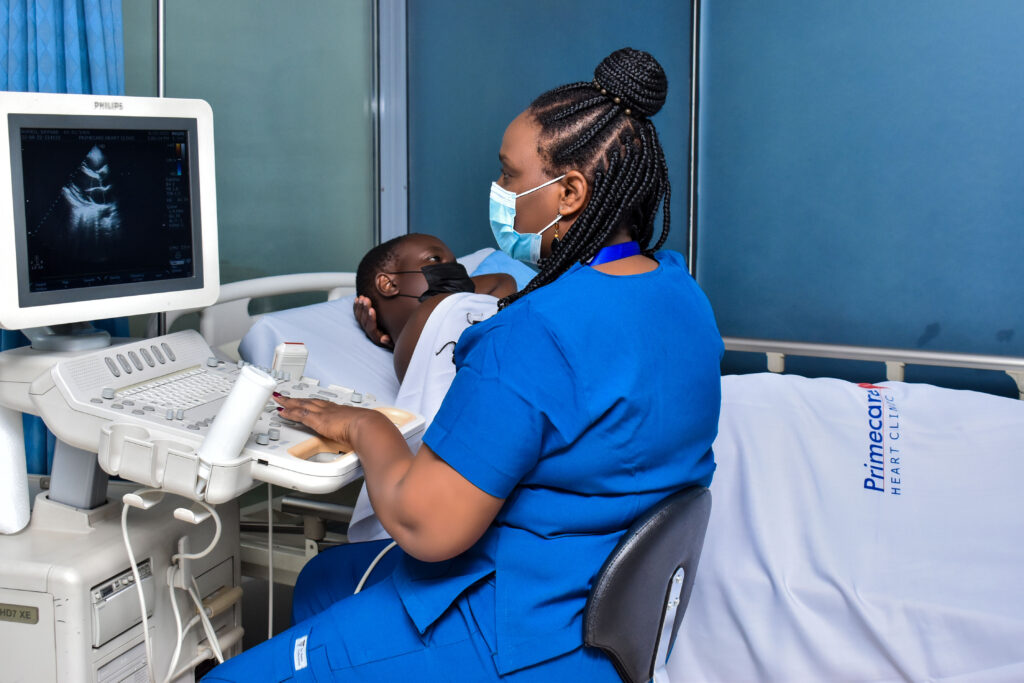
EchoCardiogram
An echocardiogram, often referred to as an “echo,” is a medical test that uses sound waves (ultrasound) to create images of the heart.
It is a non-invasive and safe procedure that helps healthcare providers assess the structure and function of the heart.
Here are some key points about EchoCardiogram
During an echocardiogram, a trained technician, known as a sonographer, applies a special gel to the patient’s chest and then uses a device called a transducer to send high-frequency sound waves into the body. These sound waves bounce off the various structures of the heart, including the heart valves, chambers, and blood vessels. The transducer captures the echoes of these sound waves and converts them into detailed images of the heart on a monitor.
Echocardiograms are used to:
1. Evaluate the size, shape, and movement of the heart’s chambers and walls.
2. Assess the function of the heart valves and check for any valve abnormalities.
3. Measure the amount of blood pumped by the heart with each beat (ejection fraction).
4. Detect and assess the severity of heart conditions such as heart murmurs, heart muscle disorders, and congenital heart defects.
5. Monitor the progression of heart diseases and the effectiveness of treatment.
6. Identify blood clots, tumors, or other abnormalities within the heart.
7. Assess the presence of fluid around the heart (pericardial effusion).
Echocardiography comes in different types, including transthoracic echocardiography (TTE) and transesophageal echocardiography (TEE). TTE is the most common and involves placing the transducer on the chest’s surface. TEE involves inserting a specialized transducer through the esophagus to obtain closer and more detailed images of the heart, which can be useful in certain situations.
Echocardiograms are valuable tools for diagnosing and monitoring heart conditions, and they are often an essential part of cardiology evaluations. They are typically performed in hospitals, clinics, or specialized imaging centers by trained healthcare professionals. The information obtained from an echocardiogram helps guide treatment decisions and provides valuable insights into a patient’s cardiac health.
Summary
In summary, a cardiogram (ECG) is a fundamental medical test that records the electrical activity of the heart to assess its rhythm, detect irregularities, and diagnose various heart conditions. It is a valuable tool in cardiology and helps healthcare professionals provide appropriate care for patients with heart-related concerns.
Emergency Cases
Please feel welcome to contact our friendly reception staff with any general or medical enquiry.